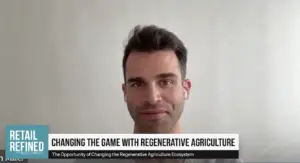Steak with a Side of Science: The New Era of Meat Production is Here
This past year the number of plant-based meat alternatives increased drastically. Now scientists are developing alternative meat products, made from real animals, without killing livestock. This is the thought process behind clean meat.
Also referred to as “lab-grown meat” or “cultured meat,” clean meat begins with an extraction of a tissue sample from a living animal. From that sample, stem cells, or “stem-like” cells in some cases, are isolated. The cells are then multiplied and differentiated by being placed in a serum and fed different proteins.
Due to the serum’s expensive nature, many companies have found cheaper, less problematic alternatives that function similarly. JUST Foods even employed its own system which uses “machine-learning for food ingredient discovery” to find the desired proteins from plant sources. The mixture is then placed in a cultivator, and then in a refrigerator, which Aleph Farms refers to as a “cow.” These machines attempt to replicate the condition the cells would be in if they were still in the actual living animal.
One of the biggest challenges for clean meat producers is creating structured product. Once the meat is produced it typically has a consistency much like a traditional sloppy Joes or beef chili. It is difficult to grow a quality cut of steak in a lab at this point, but increasing clean meat’s structure is the next step for this industry.
“You have to worry about muscle cells and fat cells and connective tissues all working in precise concert,” according to Wired, and “somehow have to get a constant stream of nutrients to the cells at the center of the steak,” which is a process easily accomplished by an animal’s vascular system.
Perhaps the greatest success of clean meat to date is the production of foie gras. Clean meat easily meets the texture requirements of the dish, and it is easy for the consumer to forget their fears and ethical questions about clean meat. When made traditionally, foie gras requires that a duck or goose be force-fed until its liver “balloons to up to 10 times its size.”
Aleph Farms in Tel Aviv, Israel seems to have found an answer to the structured meat problem and claims to have created the first lab-grown pieces of steak. In an interview with the Wall Street Journal, the company stressed that the success of clean meat would be dependent on recreating the “texture and experience of conventional meat.”
The largest problem facing companies like JUST Foods, Aleph Farms, Finless Foods, Memphis Meats, Mosa Meat and others is a combination of regulatory restraints and skepticism on the part of the public. Especially for companies within the United States, there is significant pushback on the part of the livestock industry. Many organizations within the industry, such as the U.S. Cattlemen’s Association, are seeking to “allow only meat from animals grown and slaughtered in the traditional way to be labeled as beef or meat.” This would greatly influence public opinion of the products in an industry in which, the CEO of JUST points out, there is so much power in the terms.
In April of 2018, the National Cattlemen’s Beef Association argued for clean meat to be considered meat, so that clean meat companies “would need to adhere to the USDA’s existing regulations on meat, which could hamper research and development.”
In a JUST promotional video the company highlights the unusual experience of eating a piece of chicken grown from a chicken that is still running around, alive and unharmed. The question is, will clean food companies be able to get past the regulatory red tape to bring these products to the average consumer, and if they can, will the consumer be brave enough to try them? As the population grows, and there is less and less available land for agriculture, in the years to come, the public may not have a choice.
For the latest news, videos, and podcasts in the Food & Beverage Industry, be sure to subscribe to our industry publication.
Follow us on social media for the latest updates in B2B!
Twitter – @FoodMKSL
Facebook – facebook.com/marketscale
LinkedIn – linkedin.com/company/marketscale







